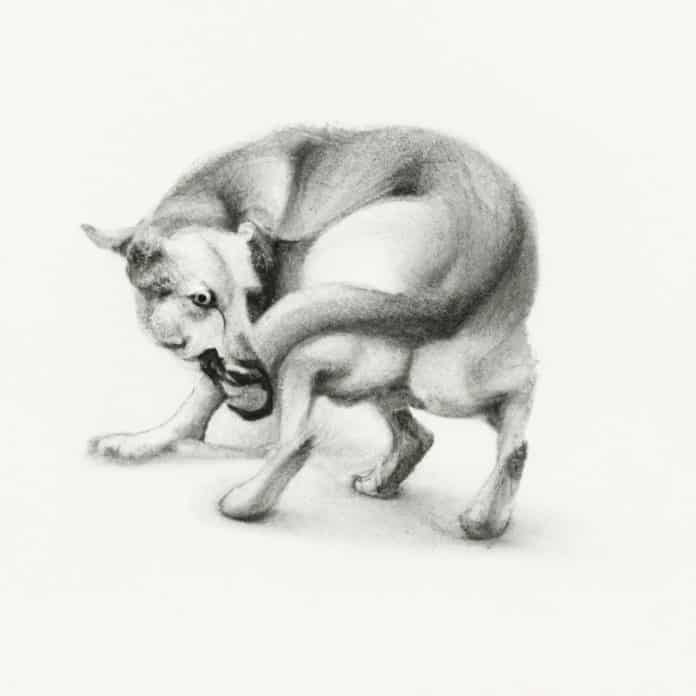Dear VetBabble,
I’ve noticed that after bathing my dog, he bites his tail, leaving it without hair and causing it to bleed. However, after about a week, he stops bothering it. What could be the reason for this behavior? Is it possible that my dog is allergic to the shampoo I use? Additionally, how often should I be bathing my dog to maintain a healthy balance of natural skin oils?
The post-bath behavior
Biting and excessive itching after bathing could be caused by a number of factors. It is possible that the shampoo you are using may be irritating your dog’s skin, and he is trying to find relief by biting his tail. Ensure you are using pet-appropriate shampoos and conditioners, as human products are often too harsh for pets. In some cases, your dog may be experiencing a reaction to a specific ingredient in the shampoo, which might also warrant a change in the product you use.
Another possibility is that the itching is the result of mites or a parasite infestation, such as mange. Observe your dog’s skin and fur for signs of redness or irritation, and consult your veterinarian if you suspect a parasite issue.
Bathing frequency
Bathing your dog too frequently may be causing more harm than good; over-bathing can strip away the natural oils produced by your dog’s skin, leading to dryness, irritation, and odor. In general, dogs do not require regular baths, as they can maintain their cleanliness through self-grooming and regular brushing. However, the frequency of baths will depend on your dog’s breed, hair type, and lifestyle.
For a detailed guide on the best method for washing your dog while keeping their skin healthy, refer to this Head to Toe Guide to Washing Your Dog and learn the Dog Grooming Basics.
Addressing the issue
To address the underlying concern of your dog’s post-bath behavior, consider the following steps:
- Evaluate your shampoo and bathing routine: Ensure you are using a gentle, pet-appropriate shampoo, and not over-bathing your dog. Remember that bathing should not be a regular part of your dog’s grooming routine, but rather an occasional activity depending on your dog’s needs.
- Monitor skin condition: Carefully observe your dog’s skin and coat for any signs of irritation, dryness, or parasites. Consult your veterinarian if you notice any abnormalities, as they may be able to recommend an appropriate treatment or course of action.
- Avoid allergens/irritants: Some dogs may be sensitive to specific ingredients in grooming products or may be allergic to environmental factors, such as grass, pollen, or dust. If you suspect an allergy, consult your veterinarian for recommendations on hypoallergenic shampoos or other ways to reduce allergen exposure.
- Seek professional advice: If the issue persists despite trying these suggestions, bring your concern to your veterinarian, as there may be underlying medical or behavioral causes for your dog’s excessive post-bath biting.
In conclusion, addressing your dog’s post-bath behavior may require assessing your bathing routine and products, monitoring their skin and coat, and seeking professional advice if needed. While it’s important to keep our furry friends clean and comfortable, it’s also vital to consider their overall health and well-being when determining the best grooming regimen.









